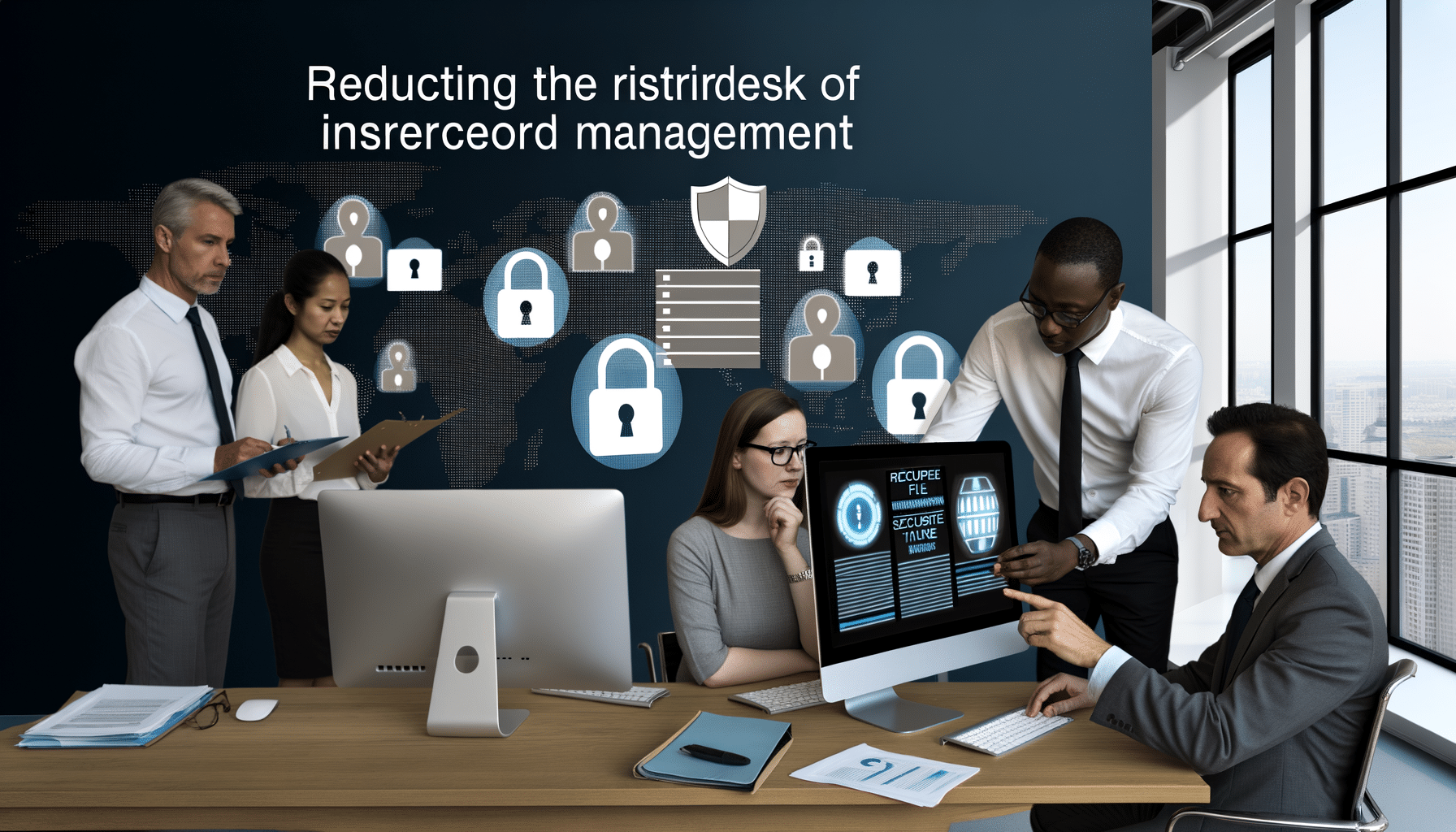- Risk Mitigation
- September 15, 2024
How Legal Firms Can Prepare for Data Breach Litigation

In an era where data is more valuable than ever, legal firms face immense pressure to safeguard the information they handle. Breaches are not just IT issues—they become legal minefields, often resulting in data breach litigation. Legal firms must equip themselves to navigate these challenges effectively. Here, I will share insights on preparing legal firms for potential data breach litigation, leveraging our experience with RecordsKeeper.AI and best practices in the industry.
Understanding the Stakes of Data Breach Litigation
Data breaches can cost firms not only financially but also in terms of reputation. The stakes are high—clients depend on legal firms to protect sensitive information, and any compromise can lead to litigation that questions the firm’s operational integrity. Understanding the potential consequences helps legal teams appreciate the importance of pre-litigation preparedness.
Prioritize Data Security Protocols
Legal firms should implement robust data security protocols tailored to their operational needs. These include:
- Encryption: Ensuring data is encrypted both at rest and in transit can protect information even if accessed by unauthorized parties.
- Access Controls: Implement role-based access controls to limit data exposure to only those who need it.
- Regular Audits and Penetration Testing: Conduct frequent security audits and simulated attacks to identify vulnerabilities.
By securing data effectively, legal firms can reduce the risk of breaches and demonstrate due diligence if they occur.
Integrate Compliance Management Solutions
With regulations like GDPR and HIPAA setting stringent data protection standards, compliance management is more crucial than ever. Tools like RecordsKeeper.AI can automate compliance workflows, ensuring adherence to industry norms. Legal firms should establish a culture of compliance from the ground up, integrating technology where possible to monitor and maintain standards without significant manual effort.
Know Your Obligations
- Understand jurisdiction-specific data protection laws.
- Regularly update compliance strategies based on regulatory changes.
- Engage with professional bodies for guidance and best practices.
Enhance Record Management with Technology
Today’s legal firms must handle a substantial amount of records. Efficient record management not only aids daily operations but also simplifies the data retrieval process during litigation. By employing platforms like RecordsKeeper.AI, firms can automate record categorization and retrieval, ensuring that files are readily available when defending against claims or filing necessary documentation in court.
Establish a Data Breach Response Plan
Having a data breach response plan is not just good practice—it’s essential. This plan should outline:
- Immediate Actions: Steps to contain a breach and prevent further compromise.
- Communication Strategy: How to inform stakeholders transparently and legally.
- Legal Preparedness: Leverage insights from past litigation to refine responses.
Regularly test and update this response plan to reflect evolving threats and organizational changes.
Train Your Team
A well-trained team is a firm’s first line of defense in data breach situations. Training should cover:
- Recognizing phishing scams and other security threats.
- Understanding the importance of data privacy and legal obligations.
- Proper handling and reporting of suspected data breaches.
Incorporate regular training sessions and drills to ensure that every team member is prepared to act swiftly and appropriately.
Seek Expert Guidance When Needed
Complex data breach scenarios can be challenging to navigate without expert guidance. Partnering with cybersecurity professionals or legal experts specializing in data protection can provide an additional layer of reassurance. Collaborating with these experts ensures that legal firms have a comprehensive understanding of the technical and legal landscapes.
Conclusion
Preparing for data breach litigation requires a multifaceted approach that combines robust security measures, legal compliance, efficient record management, and proactive planning. By leveraging technology and fostering a culture of security and compliance, legal firms can not only mitigate risks but also transform potential crises into opportunities for demonstrating resilience and accountability.
As I continue to innovate with RecordsKeeper.AI, I am committed to helping legal firms navigate these complex challenges and turn them into strategic advantages. For more insights into how our platform can assist your firm, feel free to connect with me or explore our resources.
Toshendra Sharma is the visionary founder and CEO of RecordsKeeper.AI, spearheading the fusion of AI and blockchain to redefine enterprise record management. With a groundbreaking approach to solving complex business challenges, Toshendra combines deep expertise in blockchain and artificial intelligence with an acute understanding of enterprise compliance and security needs.
Related Posts

Reducing the Risk of Insider Threats in Record Management
Understand how to safeguard against internal threats in record management.
- July 30, 2023
Archives
- January 2025
- December 2024
- November 2024
- October 2024
- September 2024
- August 2024
- July 2024
- June 2024
- May 2024
- April 2024
- March 2024
- February 2024
- January 2024
- December 2023
- November 2023
- October 2023
- September 2023
- August 2023
- July 2023
- June 2023
- May 2023
- April 2023
- March 2023
- February 2023
- January 2023
- December 2022
- November 2022
- October 2022
- September 2022
Want to get more content like this?
Signup to directly get this type of content to your inbox!!
Latest Post
Document Control for Equipment Maintenance
- January 20, 2025
Managing Records for Multiple Clients
- January 19, 2025
Handling Conference Documentation
- January 18, 2025
Setting Up Department Record Reviews
- January 17, 2025





